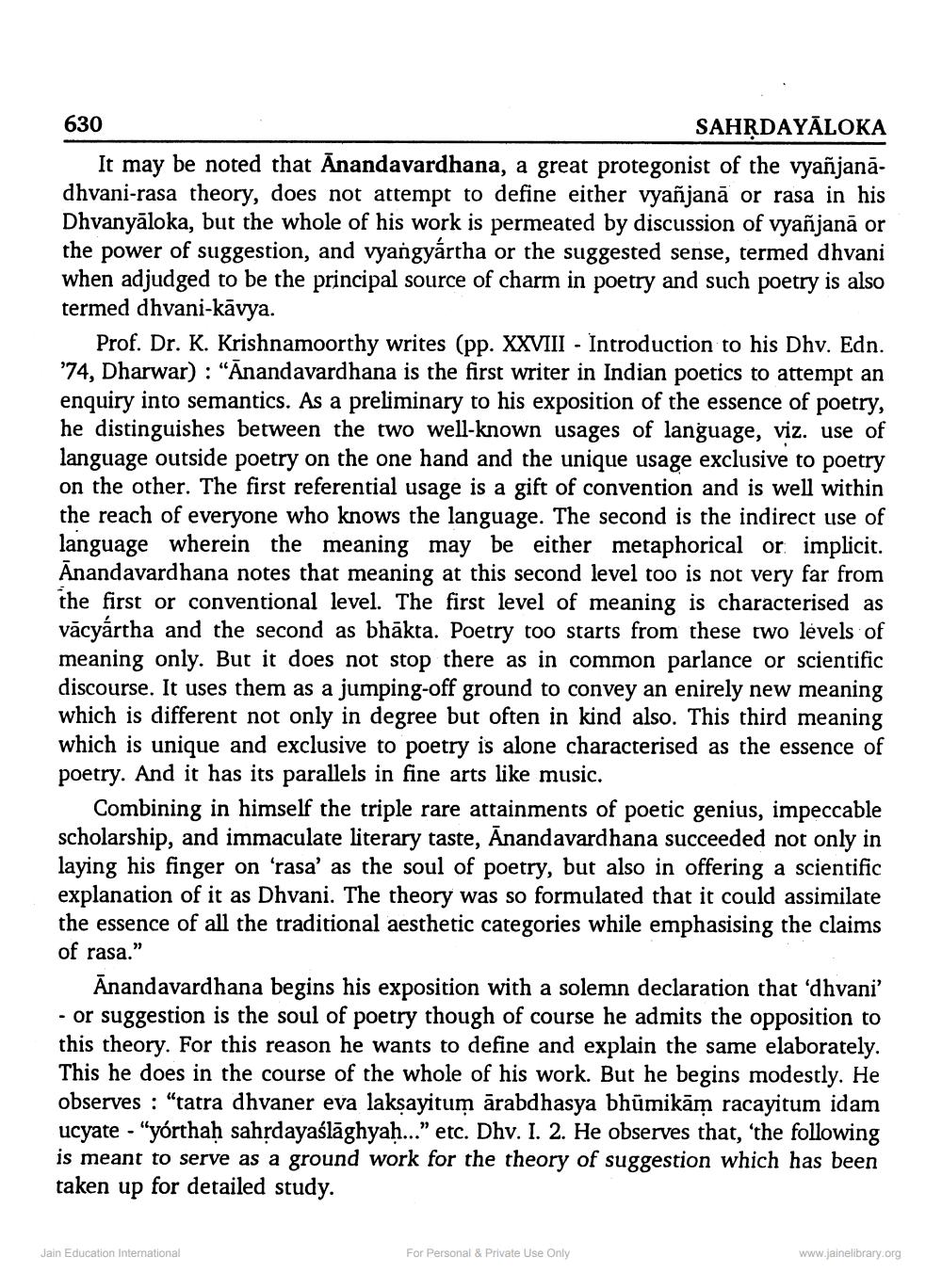________________
630
SAHŞDAYĀLOKA It may be noted that Anandavardhana, a great protegonist of the vyañjanādhvani-rasa theory, does not attempt to define either vyañjanā or rasa in his Dhvanyāloka, but the whole of his work is permeated by discussion of vyañjanā or the power of suggestion, and vyangyártha or the suggested sense, termed dhvani when adjudged to be the principal source of charm in poetry and such poetry is also termed dhvani-kāvya.
Prof. Dr. K. Krishnamoorthy writes (pp. XXVIII - Introduction to his Dhv. Edn. *74, Dharwar): "Anandavardhana is the first writer in Indian poetics to attempt an enquiry into semantics. As a preliminary to his exposition of the essence of poetry, he distinguishes between the two well-known usages of language, viz. use of language outside poetry on the one hand and the unique usage exclusive to poetry on the other. The first referential usage is a gift of convention and is well within the reach of everyone who knows the language. The second is the indirect use of language wherein the meaning may be either metaphorical or implicit. Anandavardhana notes that meaning at this second level too is not very far from the first or conventional level. The first level of meaning is characterised as vācyártha and the second as bhākta. Poetry too starts from these two levels of meaning only. But it does not stop there as in common parlance or scientific discourse. It uses them as a jumping-off ground to convey an enirely new meaning which is different not only in degree but often in kind also. This third meaning which is unique and exclusive to poetry is alone characterised as the essence of poetry. And it has its parallels in fine arts like music.
Combining in himself the triple rare attainments of poetic genius, impeccable scholarship, and immaculate literary taste, Anandavardhana succeeded not only in laying his finger on 'rasa' as the soul of poetry, but also in offering a scientific explanation of it as Dhvani. The theory was so formulated that it could assimilate the essence of all the traditional aesthetic categories while emphasising the claims of rasa."
Anandavardhana begins his exposition with a solemn declaration that 'dhvani' - or suggestion is the soul of poetry though of course he admits the opposition to this theory. For this reason he wants to define and explain the same elaborately This he does in the course of the whole of his work. But he begins modestly. He observes : "tatra dhvaner eva laksayitum ārabdhasya bhūmikām racayitum idam ucyate - "yórthah sahrdayaślāghyah..." etc. Dhv. I. 2. He observes that, the following is meant to serve as a ground work for the theory of suggestion which has been taken up for detailed study.
Jain Education Interational
For Personal & Private Use Only
www.jainelibrary.org




